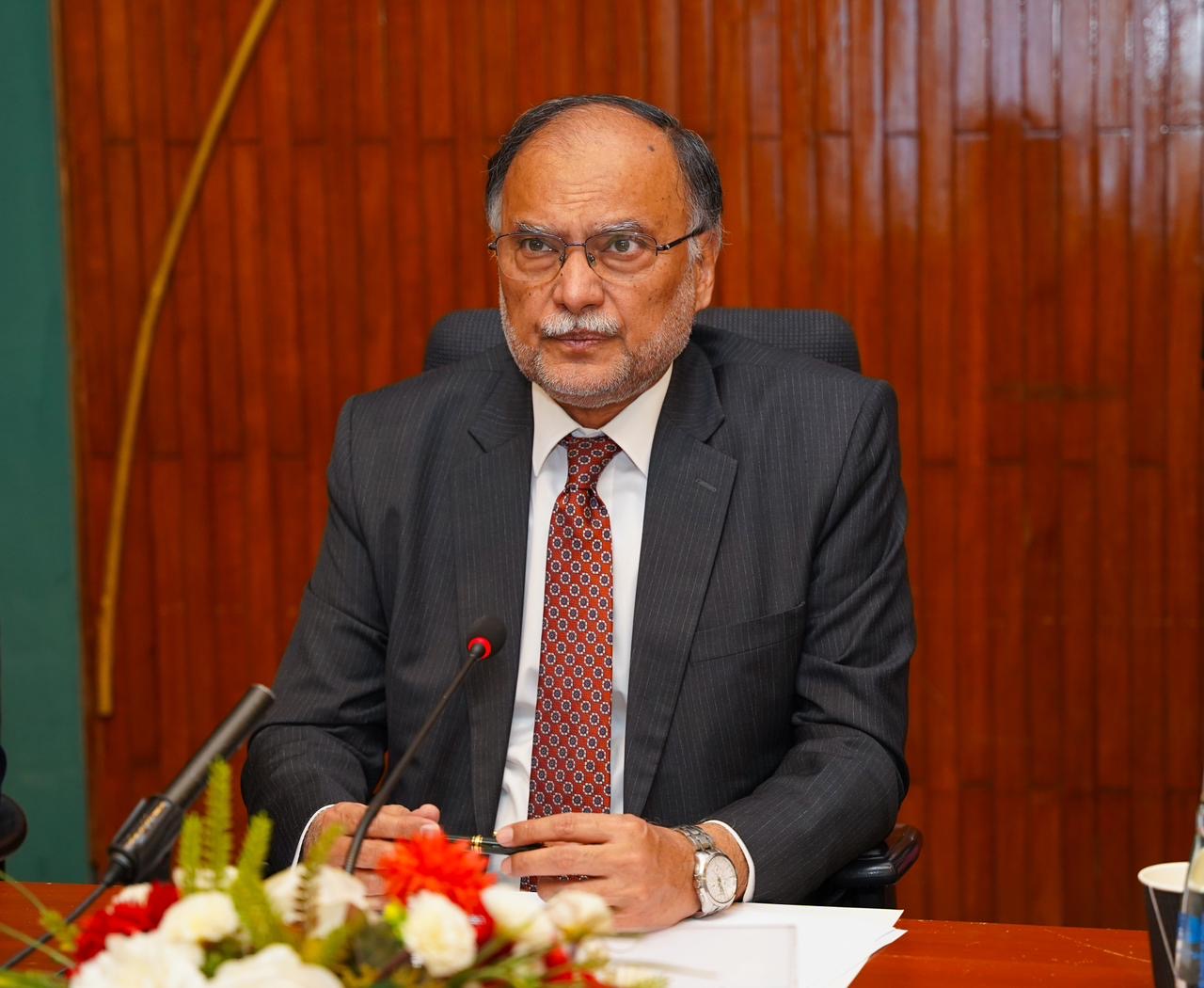 Islamabad: Planning Minister Prof. Ahsan Iqbal chaired a high-level forum on the subject titled “Pro-Growth Agenda within IMF Program” to discuss Pakistan’s economic growth strategy under the recently approved International Monetary Fund (IMF) program. The forum brought together key stakeholders, including economists, industry leaders, and experts from various sectors of the economy, to deliberate on strategies aimed at achieving macroeconomic stability, sustainable growth, and the expansion of exports and employment opportunities.
Islamabad: Planning Minister Prof. Ahsan Iqbal chaired a high-level forum on the subject titled “Pro-Growth Agenda within IMF Program” to discuss Pakistan’s economic growth strategy under the recently approved International Monetary Fund (IMF) program. The forum brought together key stakeholders, including economists, industry leaders, and experts from various sectors of the economy, to deliberate on strategies aimed at achieving macroeconomic stability, sustainable growth, and the expansion of exports and employment opportunities.
In his opening remarks, Planning Minister Prof. Ahsan Iqbal highlighted the importance of engaging economists, industry leaders, and experts from various sectors to develop a clear roadmap following Pakistan’s agreement with the IMF. He emphasized that the program’s goal is to restore macroeconomic stability rather than focus on immediate growth. The challenge, according to the Minister, lies in balancing growth while managing import control, as past growth phases have been followed by economic downturns due to rising imports and insufficient export expansion. He stressed that without addressing long-standing economic imbalances, Pakistan’s growth would continue to be short-lived.
The Minister also drew attention to the economic transformations achieved by several Asian nations over the past two decades, stating that Pakistan must aim for an 8% annual growth rate to generate enough employment opportunities for its young population and ensure long-term prosperity. Achieving this target, he explained, is essential for providing the country’s youth with a brighter future, noting that Pakistan’s growth must be sustainable and not merely a temporary peak followed by economic instability.
Prof. Iqbal identified the rapid expansion of exports as the foundation for sustained high economic growth. He emphasized that surpassing the $100 billion export mark is critical for building a more resilient economic ecosystem. Additionally, he underscored the vital role of foreign direct investment (FDI) in this effort, citing the successful examples of countries like China, Japan, South Korea, and India, which leveraged FDI to integrate with global supply chains and significantly boost exports.
In addition to focusing on exports and FDI, Prof. Iqbal stressed the need for increased productivity across all sectors, particularly in agriculture. Despite Pakistan being one of the world’s top producers, it continues to lag behind in terms of productivity. He pointed out that Pakistan’s average milk yield per animal is significantly lower than global standards and highlighted Israel’s success in achieving much higher yields through the adoption of advanced processes and technologies. He noted that similar improvements could unlock substantial growth in Pakistan’s agriculture sector.
The Minister called on the experts in attendance to contribute towards formulating a comprehensive framework to guide Pakistan through the IMF program, ensuring sustainable growth. He warned against complacency, noting that without extraordinary effort over the next three years, Pakistan could find itself facing the same economic challenges at the end of the IMF program. Collective action, he stressed, is required to build a resilient economic structure.
Prof. Iqbal also acknowledged recent positive trends in Pakistan’s economic indicators, including reduced inflation, improved international standing, renewed investor confidence, and a lowered policy rate. However, he cautioned that achieving further progress would require political stability and policy continuity over the next five years. He stressed that avoiding political uncertainty is essential, and this responsibility lies with not only politicians but also the judiciary, establishment, and all other national institutions.
In his closing remarks, the Minister urged the need for a long-term vision as Pakistan approaches its centennial of independence in 2047. He emphasized that the next 24 years will pass quickly, and it is critical for the country to be prepared for this milestone. Prof. Iqbal called for unity and purpose to overcome past setbacks and build a brighter, more prosperous future for Pakistan.
Sub Editor: Ghufran